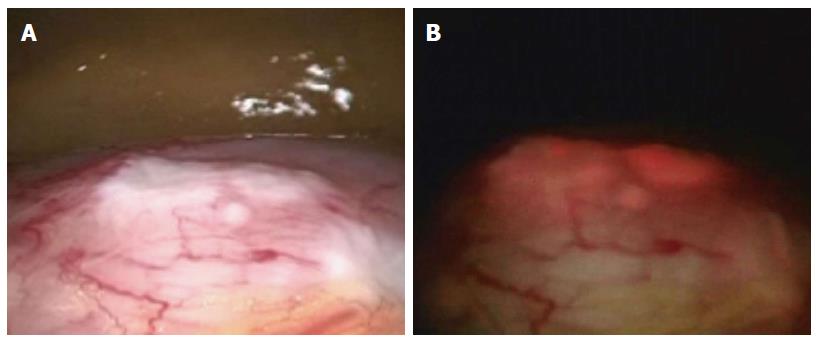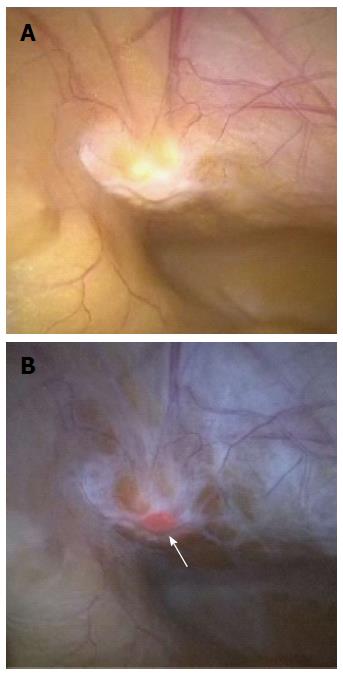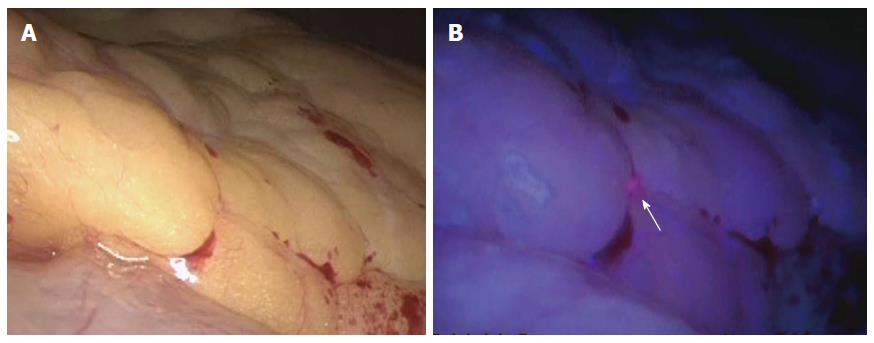©The Author(s) 2015.
World J Gastroenterol. Aug 7, 2015; 21(29): 8769-8775
Published online Aug 7, 2015. doi: 10.3748/wjg.v21.i29.8769
Published online Aug 7, 2015. doi: 10.3748/wjg.v21.i29.8769
Figure 1 Staging laparoscopy images using photodynamic diagnosis-5-aminolevulinic acid showing serosal invasion of gastric cancer.
A whitish nodulated surface was seen in the stomach (A), which was visualized by ALA-induced red fluorescence (B). ALA: 5-aminolevulinic acid.
Figure 2 Peritoneal metastasis of gastric cancer comparing photodynamic diagnosis-5-aminolevulinic acid with conventional methods during staging laparoscopy.
ALA-induced red fluorescence was seen in the white nodule (B, arrow), which appeared as a non-specific nodule under white light (A). ALA: 5-aminolevulinic acid.
Figure 3 Peritoneal metastasis of gastric cancer detected by photodynamic diagnosis using 5-aminolevulinic acid.
ALA-induced red fluorescence was seen in the omentum (B, arrow), which was not detected under white light (A). ALA: 5-aminolevulinic acid.
- Citation: Namikawa T, Yatabe T, Inoue K, Shuin T, Hanazaki K. Clinical applications of 5-aminolevulinic acid-mediated fluorescence for gastric cancer. World J Gastroenterol 2015; 21(29): 8769-8775
- URL: https://www.wjgnet.com/1007-9327/full/v21/i29/8769.htm
- DOI: https://dx.doi.org/10.3748/wjg.v21.i29.8769















